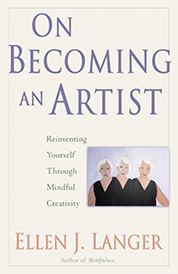Dr. Ellen Langer, Professor of Psychology at Harvard University, has written extensively on the illusion of control, decision-making, aging and "mindfulness" in over 200 research articles and several books.
She is best known for her concept of "mindlessness" -the idea that much of what we believe to be rational thought is in fact just our brains on autopilot- and her concept of "mindfulness", the idea that simply paying attention to our everyday lives can make us happier and healthier.
Her work has led to numerous academic honors including a Guggenheim Fellowship, the Distinguished Contributions of Basic Science to Applied Psychology Award of the American Association of Applied and Preventive Psychology, the Distinguished Contributions to Psychology in the Public Interest Award of the American Psychological Association, the James McKeen Cattel Award, and the Gordon Allport Intergroup Relations Prize.
The citation for the American Psychological Association's Distinguished Contributions reads in part: "her pioneering work revealed the profound effects of increasing mindful behavior and offers new hope to millions whose problems were previously seen as unalterable and inevitable; Dr. Langer has demonstrated repeatedly how our limits are of our own making."
Ellen Langer is a fellow of The Sloan Foundation, The American Psychological Association, The American Psychological Society, The American Association for the Advancement of Science, The Society for the Psychological Study of Social Issues, and The Society of Experimental Social Psychologists. She was Harvard's first tenured woman Professor of Psychology, and her discoveries helped trigger, among other things, the burgeoning positive-psychology movement.







